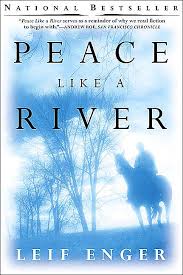
Two months ago, the very thought of bringing up spiritual topics with those of "opposing views" would have terrified me. Even after reading several books on evangelism and going through the Way of the Master program through my church, I had very little confidence in my methods for bringing up spiritual concerns, let alone in how to make the best use of the opportunities that came up on their own.
I have finally read a book that has completely changed my mindset. After reading Tim Challies' review, I knew had I had to give the book a try, and I was not disappointed. The book is called Tactics, and is written by Gregory Koukl, who, according to the back of the book, "holds MA degrees in both apologetics and philosophy", and has "spoken on many college campuses and hosted his own radio talk show for 18 years defending 'Christianity Worth Thinking About'". So now let's talk about the book...
The first two chapters of Tactics lay some foundation on why Christians should "argue", addressing many of his readers' reservations along the way. Koukl describes how one needs three basic skills in order to effectively represent Christ, or in other words, to be his ambassadors in the twenty-first-century: knowledge, wisdom, and character. He says:
Koukl later defines what he means by "Tactics", saying that they involve focusing on the situation at hand, designing your "particular responses to particular people so you can begin to have an impact in specific situations". He says tactics can help because they offer techniques of maneuvering through difficult situations.These three skills-- knowledge, an accurately informed mind; wisdom, an artful method; and character, an attractive manner-- play a part in every effective involvement with a non-believer. The second skill, tactical wisdom, is the main focus of this book.
The first and most valuable in terms of flexibility and adaptability of all of the tactics is what he calls "Columbo". In fact, half of the book is dedicated to this tactic. Here's how Koukl describes it:
The key to the Columbo tactic is to go on the offensive in an inoffensive way by using carefully selected questions to productively advance the conversation. Simply put, never make a statement, at least at first, when a question will do the job.
For me, the Columbo tactic was by far one of the most helpful concepts that I gleaned from the book. The three basic steps to the tactic, each step having a chapter devoted to it, are:
- Gather the facts ("What did you mean by that?")
- Reverse the burden of proof ("How did you come to that conclusion?")
- Lead the way
- Questions are friendly and flattering
- You'll get an education
- Questions allow you to make progress on a point without being pushy
- Carefully placed questions put you in the driver's seat
The second half in the book goes into the nitty-gritty tactics for finding flaws in peoples' arguments. Some of these "deconstructions" were really helpful for me, such as the section on the "prohibition of proselytizing", or sharing the Christian faith in an attempt to influence someone to become a Christian. When someone objects, saying "You should stop trying to change other people's religions views," their statement has a fundamental flaw, because by making that statement, they are trying to change the Christian's religious views, which command sharing the gospel to all people.
However, I could see many people objecting to how "simply" Koukl points out flaws to some of the more complicated theological issues. For instance, his section on Theistic Evolution is so simple that there's no way it would persuade a theistic evolutionist (see some of the discussion on Challies' blog).
Overall, I found Tactics to be an excellent book on discussing spiritually issues with in a non-offensive manner. The message is offensive enough, without the messenger getting in the way. I certainly will be coming back to this book again and again in years to come.




